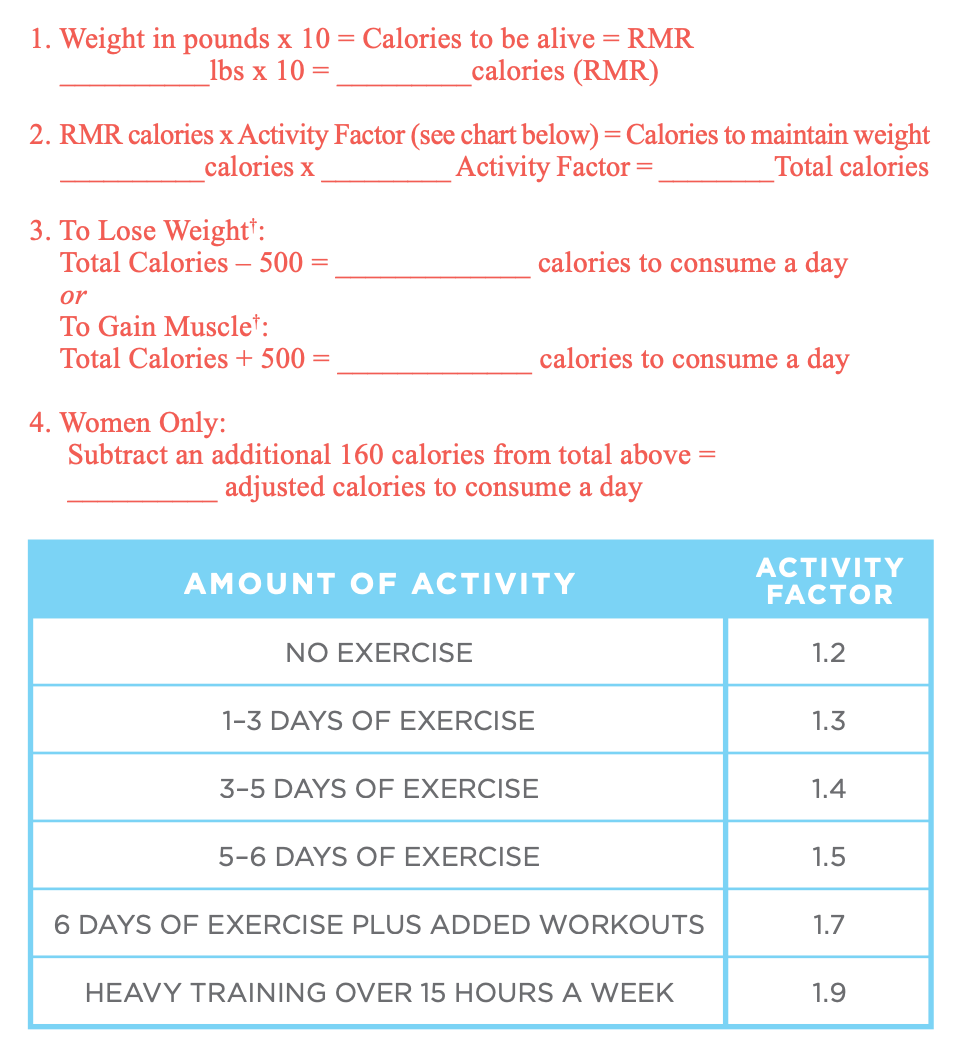
Losing weight starts with eating healthier and exercising more. Pretty simple, right? Well, for a lot of us it just isn’t that clear cut. There’s no one-size-fits-all approach to nutrition. In order to be successful in the long term, it’s important to individualize nutritional needs to your body. This can start with knowing your unique calorie needs. Note, you should always check with your health care provider before making changes to your diet.
What is a calorie?
As a scientific term, a calorie is defined as a unit of heat equal to the amount of heat needed to raise the temperature of 1,000 grams of water by 1 degree Celsius. However, for everyday use most people know calories as the units of energy we get from food. Nutrients in the foods you eat contain caloric content used to produce energy and are found in carbohydrates, protein and fats, otherwise known as macro-nutrients. Paying attention to calories is an important part of managing your weight, and it starts with knowing how many you need.
An over-consumption of calories paired with a sedentary lifestyle tilts the scale in favor of weight gain. When the calories you burn through physical activity and regular basal body functions exceed the number of calories gained from the food you eat, you lose weight.
How to calculate calorie needs
So how many calories should you be eating on a normal basis? It is different for every person and based on a variety of factors beginning with your Resting Metabolic Rate. Also known as “RMR” this is the number of calories you need to sustain basic life. There are many methods to determine calorie needs, including equations like Mifflin St. Jeor, Harris Benedict and more. To make it easy, here is a simple formula you can use to estimate your individualized calorie needs:

Looking to make healthier changes? Here are some other great resources to check out!
- AdvoCare’s 5 Pillars of Wellness
- Why and How to JumpStart Healthy Habits
- New Year, New You: Goal Setting
† Note: These guidelines are for educational use only and should not be considered or used as a substitute for medical advice, diagnosis or treatment. Responses to any fitness or nutritional program will vary based on individual characteristics. Readers should seek the advice of a physician or other qualified health care provider with any questions regarding personal health or medical conditions or before making changes to their nutritional program. Individuals who have a significant amount of weight to lose may need to further adjust their calorie goals under the guidance of a physician or qualified health care provider.





